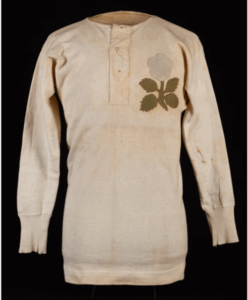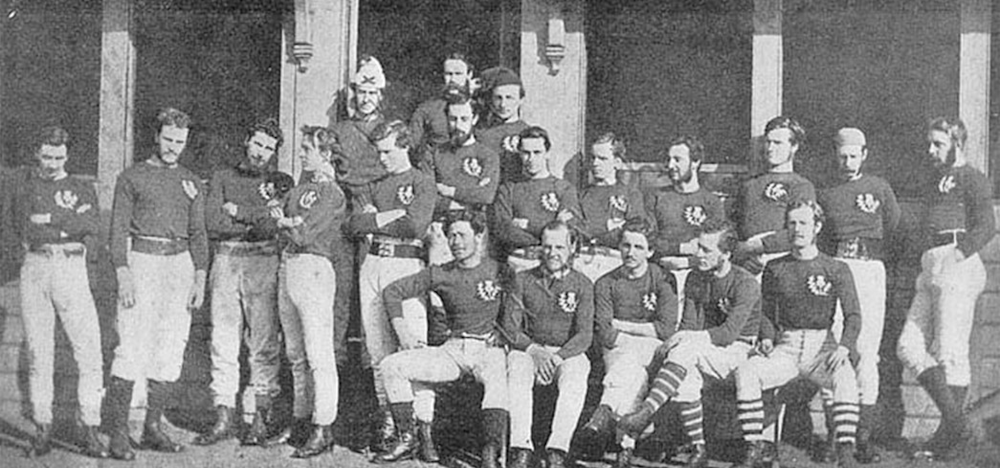It’s hard to pin down the exact moment rugby stopped being just a game and became part of South Africa’s DNA. Maybe it was the first time a dusty school field in KwaZulu-Natal echoed with the sound of a ball being passed, or maybe it happened later, when black boots hit green grass under stadium lights and thousands of people roared in unison. But one thing’s certain, rugby’s history isn’t just about sport anymore. It’s about belonging, pride, struggle, and reinvention.
The story begins long before professional contracts and televised matches, back in the late 1800s, when British soldiers and settlers brought their version of the game to South African shores. In KwaZulu-Natal, it started in scattered fields and clubhouses with names that wouldn’t mean much outside local circles. Men in heavy cotton jerseys, playing more for bragging rights than trophies, building a tradition that would stretch far beyond what they probably imagined at the time.
Back then, rugby was a brutal, muddy affair. There were no sleek training facilities or nutrition plans. Players worked jobs during the week, packed into creaky buses on weekends, and played because something about the game pulled them in. It wasn’t graceful. It wasn’t glamorous. But it was alive with a kind of raw, honest energy that no amount of modern gloss could recreate today. That’s where the roots of South African rugby were planted, in sweat and tackles that didn’t always follow the rules.
As the decades rolled on, rugby in KwaZulu-Natal evolved like everything else around it. What once lived in amateur clubhouses started creeping into schools, becoming part of the rhythm of growing up. In places like Durban, you could feel the shift. Rugby wasn’t just a weekend distraction anymore, it was serious business. Training sessions got sharper. Clubs grew bigger. The rivalries deepened. By the time the Sharks rose to prominence, representing KZN on a national stage, the region’s rugby identity was already carved into stone.
But no story about rugby’s history would be honest without talking about the divides. For years, South African rugby was a world split down the middle. One version in the townships, another in the suburbs. Matches played in parallel realities, black clubs often fighting for recognition and resources, while the country’s big names stayed wrapped in old-school tradition. That was rugby too, gritty, fractured, beautiful in places and broken in others.
When unity finally came, post-apartheid, it wasn’t a clean cut. It was more like a slow, grinding realignment. KwaZulu-Natal felt that just as hard as anywhere else. But through that, something new started to take shape. Rugby stopped being one thing for one group and started to feel like something wider. You could feel it in school teams pulling players from different communities. You could hear it in the mix of languages shouted from the sidelines. The game evolved, not just in how it was played, but in who it belonged to.
 From a technical side, everything sharpened. The game today barely resembles those early, muddy scrums from the 1900s. Players move faster. Tactics are cleaner. There’s science behind every play. GPS trackers in jerseys, analysis teams reviewing footage down to the smallest twitch of a player’s shoulder. But despite all the high-tech layers, the heart of it hasn’t changed. Rugby in KZN is still about stepping onto a field, feeling the weight of the jersey on your back, and knowing that every pass, every hit, carries the weight of years behind it.
From a technical side, everything sharpened. The game today barely resembles those early, muddy scrums from the 1900s. Players move faster. Tactics are cleaner. There’s science behind every play. GPS trackers in jerseys, analysis teams reviewing footage down to the smallest twitch of a player’s shoulder. But despite all the high-tech layers, the heart of it hasn’t changed. Rugby in KZN is still about stepping onto a field, feeling the weight of the jersey on your back, and knowing that every pass, every hit, carries the weight of years behind it.
There’s something cinematic about standing in a stadium like Kings Park, looking out at the grass, and knowing that beneath it all, beneath the polished turf and the perfect paint lines, there’s history in the soil. Every generation layering its own story over the last one. Old club rivalries that still spark up when teams meet. Young players stepping onto the field knowing they’re part of a line that stretches back more than a century.
It’s not just nostalgia that keeps it alive. It’s the constant evolution. From school leagues tightening their formats to professional teams pushing the edge of what’s possible, rugby in KwaZulu-Natal doesn’t stand still. It absorbs new talent, new tactics, new challenges. Some players now come from backgrounds no one would have imagined a generation ago. Kids growing up in places where rugby wasn’t the obvious sport of choice now wear the same black and white as the legends before them.
And even with all that history sitting in its back pocket, KZN rugby doesn’t act old. It keeps moving forward. Whether it’s developing women’s rugby, building up under-18 academies, or exploring new formats like sevens, there’s always a next step. The old heartbeat stays, but the face keeps changing.
That’s the real evolution of rugby in KwaZulu-Natal. Not just moving from muddy fields to stadium lights. Not just switching from cotton jerseys to high-tech gear. But shifting from something rigid and exclusive to something alive and shared. Rugby here isn’t just about points or trophies. It’s about carrying history while refusing to get stuck in it. Running forward with the weight of the past behind you and the open field ahead.




